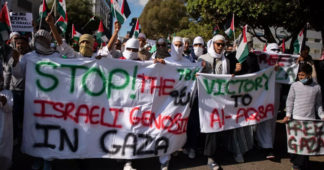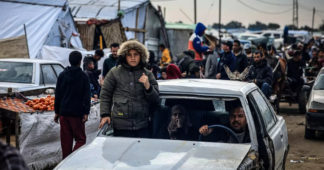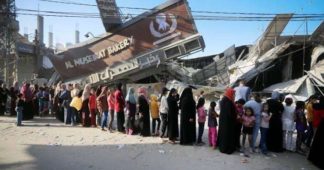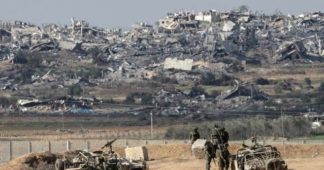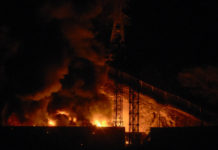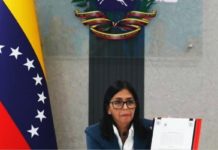By Gabriel Galice
President of GIPRI (Geneva International Peace Research Institute)
In Gaza, some 30,000 Palestinian civilians have been killed by the Israeli army, not counting the missing buried under the rubble, the sick and pregnant women who died for lack of care, the permanently injured, the mutilated without anesthetic, the abducted children, the forcibly displaced and the refugees spending the winter in precarious shelters. More deaths are expected because of the announced attack on Rafah.
Under the guise of a “war against Hamas” in response to the 7 October attacks, the State of Israel is grossly violating international law, in particular the Geneva Conventions, international humanitarian law, which require the protection of civilians, as well as the entire regime of human rights protection, including the International Covenant on Civil and Political Rights, the Convention on the Rights of the Child and the Convention against Torture.
Without waiting for the judgments of the International Criminal Court (ICC) and the International Court of Justice (ICJ), to which several states and associations have appealed, the international community must urgently move to ensure that the law is respected and that the people of Gaza are protected through international action, not just rhetoric.
On Tuesday 20 February, the United States of America vetoed for the third time a United Nations Security Council resolution based on an Algerian proposal calling for a humanitarian ceasefire between the warring parties, giving green light for the Israeli massacres to continue.
The State of Israel, by continuing its indiscriminate military actions against the entire population of Gaza is violating the letter and spirit of the ICJ order of provisional measures of 26 January 2024, based on article 41 of the ICJ statute in connection with the 1948 Convention on the Prevention and Suppression of Genocide. In 2011, the Security Council invoked the ‘responsibility to protect’ to use force against Libya over largely fabricated massacres. In 2016, the British House of Commons severely criticised the conditions and consequences of this military action. Where is the responsibility to protect in the case of Gaza?
By refusing to assume its responsibilities, the international community is condoning the massacres. There is an urgent need for a group of states to assume their responsibilities. One aspect of this would entail breaking the illegal naval blockade imposed by Israel on Gaza since 2007. This blockade must not be respected by any country and must be broken, by force if necessary. States should immediately stop any weapons deliveries to Israel. States delivering lethal weapons to Israel are complicit in the genocide pursuant to Article III e of the Genocide Convention. Moreover, States should consider suspending all trade with Israel, and notifying Israel that unless the genocide stops immediately, diplomatic relations with Israel will end.
Protests and exhortations are useless. A group of states should send hospital ships, helicopter carriers and supply ships to Gaza. Their naval and air forces will protect the humanitarian flotilla.
It is disgraceful that whereas a few states deploy their navies in the Red Sea to ensure the free flow of trade, none would protect the thousands of lives in Gaza.
By their passivity, states are complicit in the massacres, genocidal or otherwise, that are taking place in Gaza. Since the states are complicit in the name of the people, it is up to the citizens to make a strong appeal to the political decision-makers to put an end to the massacres.
We remind our readers that publication of articles on our site does not mean that we agree with what is written. Our policy is to publish anything which we consider of interest, so as to assist our readers in forming their opinions. Sometimes we even publish articles with which we totally disagree, since we believe it is important for our readers to be informed on as wide a spectrum of views as possible.
